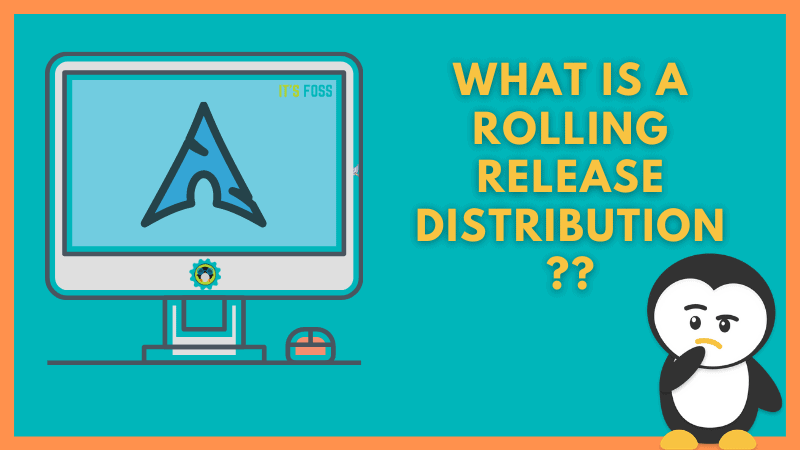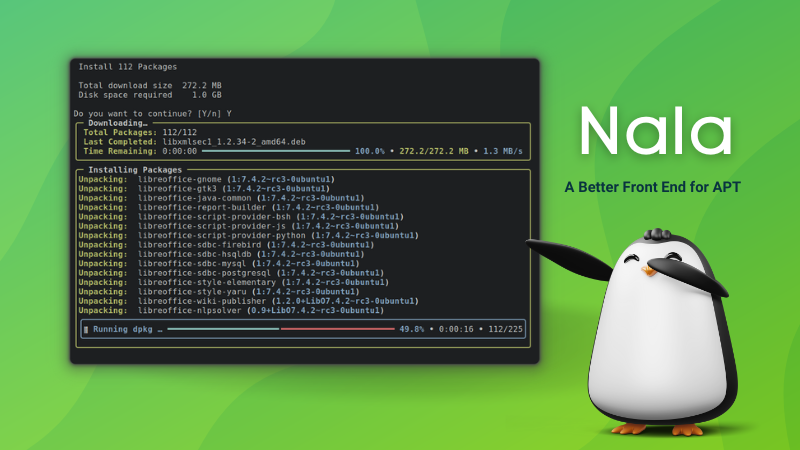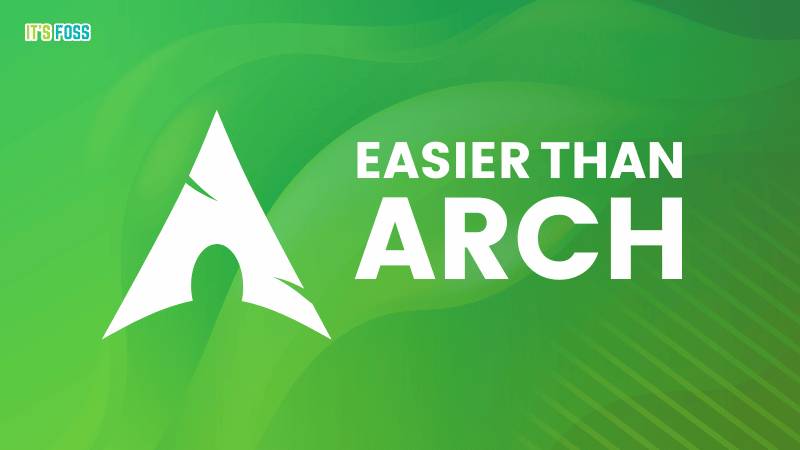
There are so many Linux distributions that can be divided into different categories based on their characteristics, update schedule, features, intended user base and more.
In this article, I will list some of the best rolling release Linux distributions. If you are curious, these distros are special because of their update cycle.
These distros do not wait for six months or more to release a new version with newer versions of the Linux kernel, desktop environment and other major software components.
They update these components soon after they are released. You do not have to upgrade your distribution from one major version to the next because your distribution keeps getting the upgrades regularly.
Now that you have an idea of what I am going to list, let’s take a look at some of the best rolling release distros that you can use on the desktop.
Suggested Read 📖

In addition, note that this is not a ranking list.
1. openSUSE Tumbleweed

The good old openSUSE focused on stability for years with their point release system. A few years ago, they decided to change their offering by creating openSUSE Leap and Tumbleweed.
While openSUSE Leap follows a point release with a new version coming after every few years, Tumbleweed is rolling release with new software landing in soon after their release.
openSUSE Tumbleweed makes a great choice for those who want to stay on the RPM side (Red Hat side). openSUSE ecosystem is a lot more diverse with a huge repository of software and Zypper and YaST gives you plenty of options for package management.
2. Rhino Linux
Rhino Linux is an Ubuntu-based rolling release offering that features the XFCE desktop environment.
It utilizes Pacstall at its core to let you easily manage/install packages. You can also choose to enable Flatpak and extras like Nala for package management from its welcome screen.
Suggested Read 📖

3. Arch Linux

BTW, Arch Linux is the most popular rolling release distribution. It’s almost a synonym with rolling release.
There are plenty of reasons why Arch Linux has a cult status among Linux users. I think it’s more to do with the sense of achievement one feels after installing Arch Linux because even the installation procedure is not like other distros.
Arch has a good bunch of software available officially in its repositories. And then Arch User Repository (AUR) makes almost any other Linux software available through the community effort.
This is a good choice if you are a bit experienced with Linux and want to challenge yourself to the next level.
Suggested Read 📖

4. Manjaro Linux

Manjaro is basically Arch, minus all the hassle that comes with Arch Linux.
It is based on Arch Linux, so it gets most of the positives of Arch Linux. You get Pacman and AUR with a rolling release model. And at the same time, Manjaro has a graphical installer, a GUI-based package manager and other graphical tools to improve your desktop experience.
Manjaro is easier to install, easier to use. A good choice for those who want to stay in the Arch domain comfortably.
Suggested Read 📖

5. Solus Linux

Like Manjaro, Solus is also a ‘careful’ rolling release distro. Unlike Manjaro, it is not based on Arch. It’s created from scratch and uses an eopkg package manager. Solus is credited for the creation of the modern and intuitive Budgie desktop environment.
Like other rolling release distros, once you have installed Solus, you don’t need to upgrade to the next version release (which is like ISO refresh to have newer updates for fresh installation).
The slight lack of packages can be compensated with Snap applications.
Solus is a good choice if you want something different but not complicated enough to make you uncomfortable.
6. Debian Testing

You did not expect this, did you? Debian is known for its focus on stability, so much that stability sometimes equals stale, as the software versions it provides are old.
But that’s for the stable branch. Debian has several branches and one of them is called Testing.
It may seem like Testing is some sort of beta, unstable version, but that’s not entirely true. Debian Testing is the next Debian stable version. The actual development branch is the Debian Unstable (also known as Sid). Debian Testing lies somewhere in between the unstable and stable branch, where it gets the new features before the stable release.
Some people configure Debian with ‘testing’ in the sources list. That makes their Debian system stay on testing forever. This is a sort of rolling release model that Debian user can enjoy without having to leave the comfort of APT and the deb package management system.
7. Void Linux

An unusual and not-so-known distribution. Void is also one of the distros created from scratch, i.e., it’s not based on Arch, Red Hat or Debian.
It is rolling release but not bleeding edge like Arch. It gives preference to stability. This means that you don’t need to upgrade versions when a new one releases, but you don’t get the latest desktop environment version as soon as it is released.
Another thing that separates it from other distributions is the use of runit as init system.
Altogether, Void is a good choice if you are an experienced Linux user.
Suggested Read 📖

8. Gentoo Linux

Another one of those expert Linux distributions your peers warned about.
Gentoo is not everyone’s cup of tea or coffee (whichever you prefer). Everything from the installation to configuration to package management requires some sort of expertise and time.
But it has a niche user base of experts whose neck beard touch their toes while they compile everything under the sun (no discrimination, just traditionally picturing an expert!)
Gentoo could be the distro of your choice if you feel like every other distro is not challenging enough.
Suggested Read 📖

What’s your recommendation for rolling release distro?
As I mentioned earlier, I have deliberately left out other Arch-based distributions here; otherwise the list would have been filled with Arch derivatives only.
But you are free to pitch in your recommendation, even if it is based on Arch. The comment section is all yours.


